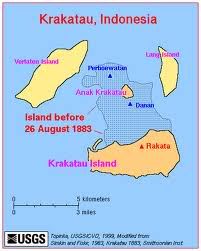Well, during the break nothing much happens by mutual agreement and I found the practice session to be inconclusive since most of it was held in the rain and the last 20 minutes everyone sat in the garage, so I was poking around in Google when I came across the Gribkowsky Affair.
Who is Gerhard Gribkowsky you say? He’s a German banker who’s been charged recently with corruption, tax evasion, and breach of trust (you’ll be pleased to know he’s actually in custody). While this is only part of the case against him, in 2005 he helped organize the $1.7 Billion sale of the 100 year Formula One lease to the current holders CVC (headed by Bernie Ecclestone) and accepted $44 Million in payments from Bernie.
One of the former minority shareholders was a media group named Kirsh which put it’s shares up as collateral for a loan with the agreement that they would participate in the profits from any sale. Constantine Medien, part of the Kirsh group, filed suit last month against Ecclestone, his lawyers, his family trust, and Gribkowsky contending that the $44 Million payment was in fact a bribe to reduce the price of the sale ensuring there were no profits to be shared.
It’s kind of like forcing a foreclosure instead of a principal reduction or a short sale.
German prosecutors are now investigating the deal and there’s definitely a very slim possibility Bernie might go to jail and it couldn’t happen to a nicer guy.
In other suits Nick Heidfeld, the points leader of the Renault team, has been unceremoniously dumped in favor of Bruno Senna, nephew of Ayrton. Heidfeld contends this was partly to grab the $3 Million bribe sponsorship Bruno brings. Renault denies this of course and in turn accuses Heidfeld of being slow (did I mention he was points leader of the team?) and lacking leadership.
Last night’s Evening Edition noted this dispute in stories 10, 11, and 33 (other Formula One news in stories 9, 32, and 43). It’s doubly difficult for Heidfeld because Renault is one of the few teams debuting substantial changes to it’s cars AND missing the race mathematically eliminates him from the Driver’s Championship (not that he had much chance anyway).
Mark Webber had a birthday and got a 1 year extension on his Red Bull contract. Michael Schumacher is celebrating his 20th anniversary in Formula One. Red Bull was quickest in the second practice session. Teams are not allowed to use Down Force Reduction in Eau Rouge because of safety concerns.
The two teams claiming the Lotus name appear to be approaching a settlement of that dispute. Robert Kubica who was badly injured racing Rally Cars has one more reconstructive surgery to go and is expected back in a simulator before the end of the season. Heidfeld was Kubica’s replacement after the accident.
Circuit de Spa-Francorchamps is one of the longest (4.4 miles) and fastest. In dry weather it’s said that you can drive 85% of it flat out. Of course it’s also one of those tracks where you will get tired of hearing it’s always raining or threatening to rain.
Speed coverage begins at 8 am. Surprising developments below.
 Welcome to the Stars Hollow Health and Fitness weekly diary. It will publish on Saturday afternoon and be open for discussion about health related issues including diet, exercise, health and health care issues, as well as, tips on what you can do when there is a medical emergency. Also an opportunity to share and exchange your favorite healthy recipes.
Welcome to the Stars Hollow Health and Fitness weekly diary. It will publish on Saturday afternoon and be open for discussion about health related issues including diet, exercise, health and health care issues, as well as, tips on what you can do when there is a medical emergency. Also an opportunity to share and exchange your favorite healthy recipes. 



Recent Comments